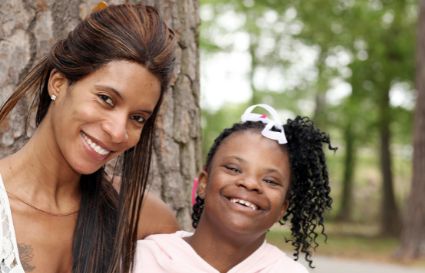
Ezinne KaluMaternal and Neonatal Care, ChildrenMarch 28, 2022
In Caring for a Special Child Essential Tips, every parent has the beautiful hope of playing games together with their kids, having them grow up healthy and happy, going to the best of schools and becoming properly educated, having them pursue their dreams, stand out, become independent, and grow up into caring, loving, and successful adults.
But sometimes, these dreams are never fully actualized. Having a child diagnosed and declared to be in special need might be difficult to come to full terms with. Caring for your special-needs child is no child’s play and you are indeed a superhero for coming this far strong.
Every kid is unique and special, no doubt. Who then is a special needs child? Investopedia terms the words “special needs child” to have been diagnosed to require special attention and specific necessities that other children do not. Such a child could have a wide variety of conditions including physical ailments, learning disabilities, and terminal illnesses.
A special child can also be referred to as an exceptional (poor) child. This condition makes learning and performing other activities difficult. The child requires extra attention, time, and care from parents, guardians, caregivers, and teachers.
Over one million people amounting to 15% of the world’s population are reported to have some form of disability, therefore requiring special care.
Emotional or behavioral: A behavioral disability can cause disruption and affect a person’s capacity to hold down a career and uphold relationships if this condition is not identified in childhood.
Behavioral disorders include anxiety disorders, dissociative disorders, impulsive or disruptive behavior, and pervasive developmental disorders. Emotional impairments are a subset of behavioral disabilities; this is because emotions frequently affect our behaviour in one way or another.
Sensory impaired disorder: This kind of handicap affects your senses of taste, smell, touch, and hearing, and it is usually self-explanatory. When you have a sensory-impaired disorder, your senses will no longer function at the same levels as others. For instance, you might need to wear glasses to improve your sight or vision abilities if you have vision impairment. There are, however, more severe visual impairments, such as blind people who cannot see anything at all.
Physical disability: A physical disability is a condition that affects a person’s strength, endurance, mobility, and hand-eye coordination. Many physical disabilities are readily apparent, such as epilepsy, even if you may not be able to tell by looking at the individual or by conversing with them. This is because a seizure makes the epilepsy person incapable and may restrict their quality of life.
There are other physical impairments, like:
Developmental disability: developmental disabilities are conditions that arise throughout childhood as they interfere with a child’s capacity to develop normally alongside others. Developmental disabilities affect a child’s capacity for learning, cause difficulty in developing and speaking a language, or cause behavioral issues. A study reported that these kinds of disabilities start in childhood and continue until the person reaches the age of 22.
The other five developmental impairments are identified as follows:

Certain conditions influence the presence of abnormalities leading to conditions such as Down syndrome, sickle cell anemia, hydrocephalus, Alzheimer’s disease, Autism, dysphasia, and so on. These risk factors include;

Parenting can be hard but having a special needs child right under your care is definitely tougher. Some challenges that come with caring for this child include;

If you have ever met a special child, you would attest that they are one of the purest souls on this planet. Whatever it is you think as a parent or guidance of a special child, just know that you are not alone. Even though the journey may seem lonely, kompletecare is here for you. Everything you need is accessible, from medical care advice to better ways of caring for a special child.
You do not have to wait in a queue to consult a doctor or any healthcare professional; you do not have to encounter travel stress of any kind or your special child becoming agitated in an unrecognized environment. Telemedicine is a comfortable way to get any service you deserve with your telecommunication device. Speak with a doctor on kompletecare about your special child and the best care methods.
1. What makes a child a special needs child?
A child is considered to have special needs if they are less likely than typical children their age to acquire certain subjects because of a learning disability or issue. Also, a special child may be having challenges in the areas of behaviour, communication, or academic performance.
If some problematic characteristics are observed in your child, you can obtain guidance and support from experts, educators, and non-profit organizations.
2. How will you care for a special child?
If you have a special child, you may feel exhausted sometimes due to some extreme daily behaviour. A special child, as the name implies, depicts having patience as a parent or guidance in caring for and providing for their needs. You can care for the special child by making an effort to engage with them verbally, smile, tell them about their surroundings, make noises so they can react to sounds, and also spend time speaking with them.
3. How can I communicate with my child with a disability, and how do I know when he/she wants to communicate with me?
Communication can be challenging with a special child. However, you will be able to communicate with a special child, even though some disabilities can prevent a special child from speaking. Just know that a special child may not speak, but they do communicate.
For instance, a newborn baby communicates non-verbally with the parents. Practically, when the baby smiles, laughs, or cries, you can infer something about the baby’s likes and dislikes. A similar thing happens to non-speaking special children.
A special child may use facial expressions like tears or unhappy looks to convey their dislikes, while smiles and laughter are used to express their likes.
4. What can I do in my day-to-day to make sure I am stimulating my child and his/her brain development?
Anything can stimulate a special child; in fact, everything in a child’s environment, including sounds, conversations, and smiles. Therefore, when your special child is with you, make sure you spend time talking to them, letting them know everything about their surroundings, smiling, and making noises so they can react to sounds.
Getting a special child involved in everything you do, including cleaning, cooking, and washing dishes, as you go around the house will also help to stimulate his or her brain development. Let your special child be in the same space where you work. Inform your special child of your actions: you are cleaning the dishes and dipping them in the water. Describe everything you are doing to him or her. Every action you demonstrate will pique their interest.
5. How do you calm a disabled child?
Each child reacts differently to each type of soothing activity, so it is critical that you identify the one that suits them. Finding activities that can calm a disabled child can be achieved by guiding them into exercises whenever they are not too busy, or, rather, seeking a more comprehensive evaluation from a pediatrician.
You can encourage play, such as children riding a tricycle or bicycle, or try a few activities below:
Turn on mellow or calm music: Calm music can stimulate a special child in such a way that the heart rate is lowered and body relaxation is achieved. You can also try gentle wind instruments like the flute and string instruments like the violin and acoustic guitar; the steady sounds produced by them can calm them down. Then the sounds of nature, such as falling rain and rustling leaves, are also excellent choices.
Switch off the lights: Putting out the lights for a short while takes away at least one stimulant from the room, which may be exactly what your disabled child needs to help them relax, even if it was not the source of their tension. If it is midday, you can move them to a dimly lit area or shut the window.
Give them a bear embrace: The hormone oxytocin is responsible for the happy feelings we experience when we hug or are hugged. Oxytocin, also referred to as the “cuddle” hormone, is a hormone that makes us feel happy and euphoric. It is released when we contact or hug someone we like. There are situations when the easiest option is the best one, especially if your disabled child appears to throw a tantrum.
Practice yoga: get your special child to become more interested in yoga, and it will help if you practice yoga with them. Yoga is one of the practices one can do routinely to regulate breathing and pay attention to postures. Yoga involves breath work, or deliberate breaths, and it is known to lower the heart rate and reduce stress.
6. Who are the people with special needs?
Special needs, also known as additional needs, are those who need support due to physical, mental, or psychological problems. In the context of clinical diagnostics and functional development, individuals with autism, cerebral palsy, Down syndrome, dyslexia, dyscalculia, dyspraxia, dysgraphia, blindness, deafness, ADHD, and cystic fibrosis are among those who may require special assistance. They may also consist of individuals with missing limbs and cleft lips.
7. Is dyslexia a special need?
Yes, dyslexia is a special need. Dyslexia hurts a child’s behaviour or social skills; for instance, a special needs child with dyslexia may find it difficult to connect and establish friendships. Children and adolescents with dyslexia also struggle with reading and writing.
8. What kind of disorder is autism?
A neurological and developmental condition known as autism spectrum disorder (ASD) has an impact on a person’s ability to learn, behave, connect with others, and communicate. Though an autism diagnosis can be made at any age, is still classified autism as a “developmental disorder” since its symptoms often manifest in the first two years of life.
The signs of autism spectrum disorder are:
9. What are the 3 challenges parents face with a special needs child?
The difficulties parents with a special needs child face can put them in a downward spiral if not well managed. The 3 among numerous challenges are:
Always keep progressing. (n.d). 5 great ways to calm a kid with special need.
Employee wellness. (n.d). Parenting children with special needs.
Gov.uk. (n.d). Children with special educational needs and disabilities (SEND).
Indirect. (n.d). Children with special educational needs.
Lee. E. (2022). What are different types of disabilities?
National Institute of Mental Health. (2023). Autism spectrum disorder.
UNICEF Parenting. (n.d). Caring for children with disabilities: Mini parenting master class.
Wikipedia. (n.d). Special needs.
healthcareAugust 20, 2025
healthcareSeptember 10, 2025








